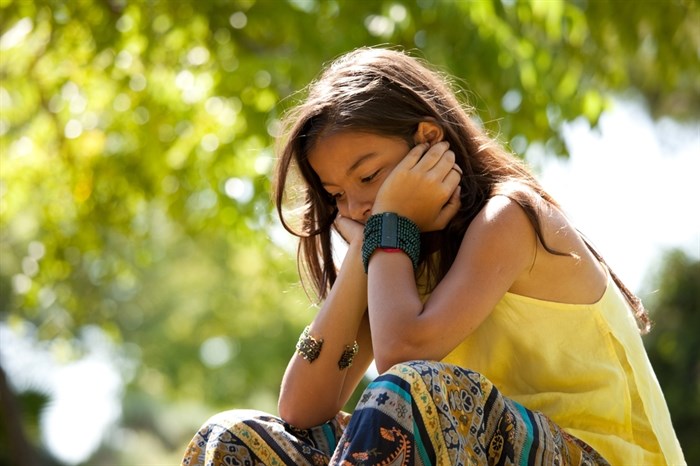
Image Credit: Shutterstock
September 14, 2018 - 6:30 PM
'I CAN'T AFFORD TREATMENT FOR MY DAUGHTER... IT'S NOT FAIR: ONLY PEOPLE WITH MONEY CAN KEEP THEIR KIDS SAFE?'
B.C.’s awareness campaign around the overdose crisis has shifted in recent years to the message that it’s not just chronic drug users that are dying — it’s professionals, recreational users, friends, family members. But what you don’t often see in the glossy posters is children as young as 12-years-old. They’re dying too.
Just turn to the B.C. Coroners Service, and you’ll see that 23 children and youth between 10 and 18 years old died last year due to an illicit drug overdose.
Things might have turned out differently for some of those kids if they’d been able to get off the drugs, but Celine Thompson, executive director of The Bridge Youth and Family Services, says access to addictions treatment for young people in our province is woefully under-funded.
READ MORE: Residential treatment in the Interior has actually declined through the overdose crisis
For starters, children must line up for one of just four treatment beds in the Okanagan, or one of roughly 50 in B.C., if they want help.
But how big is this problem, and how many kids and teenagers struggle with addictions? That’s something B.C.’s Representative for Children and Youth looked at in 2016. That report found that roughly 68,000 youth between the ages of 15 and 24 meet the criteria for a substance use disorder.
“Fifty beds for 68,000 children? The numbers do not add up,” Thompson says.
It’s important to note that not every child will require intensive residential treatment to address their substance use problems. What is evident, however, from The Bridge, is that demand for residential treatment for children — which the organization does not yet offer — is extremely high.
Staff field phone calls at least weekly, and sometimes daily, from families desperate to get their children into a program.
“We almost have to do a debrief with our reception staff because they are so emotional,” Thompson says.
Currently, the organization receives funding from Interior Health for 20 adult treatment beds. There are zero beds for children and youth. The Bridge does take children into its detox program, but often has nowhere to send them for continued treatment afterwards.
“We have admitted people as young as 12 years old,” Thompson says.
The Bridge tries its best to move kids into residential treatment after detox, but with waitlists and other challenges, it’s not always possible.
“Sometimes our hearts break and you just have to let them go,” Thompson says.
Many return to poverty, homelessness and life on the streets. Some die.
There are private treatment facilities that can be accessed much sooner, but those are expensive and out of reach for most kids and their families, Thompson says.
“People are mortgaging their homes and making sacrifices because you’ll do anything you can to get your child well,” she says.
In an effort to give at least some youth a safe, clean environment to stay while waiting to get into treatment, Thompson often uses one of the detox spaces as a “transition bed.” They’ll stay there until arrangements can be made to admit them to a proper residential treatment program. But Thompson and the staff at The Bridge know more is needed, and they have an idea.
BRIDGING THE GAP
The Bridge asked community members, youth, and frontline service workers in a recent survey what Kelowna needs most for its young people who are struggling with addiction. The often gut-wrenching anecdotes are shared in the accompanying video.
The results indicated the three main barriers youth face when trying to get help are waiting too long to get service, not having enough local options, and not knowing what is available. When asked what they believe is most needed, respondents said family support, education and counselling, followed by residential treatment options and youth alcohol and drug prevention services.
To help fill the gap in services, The Bridge has embarked on a major fundraising initiative to create a 16-bed youth treatment home in Kelowna. They are also lobbying Interior Health and B.C. Housing.
“That’s our target, 16 spaces. We might still have a waitlist,” Thompson says.
Unlike proposals for adult treatment facilities, which Thompson says have elicited some negative responses from community members not wanting that service “in their backyard”, she says Kelowna has been overwhelmingly receptive to the idea of a youth recovery home.
“When we talk about children, we don’t get any vitriol at all, we just get compassion and support,” she says. “These are our kids, they’re not numbers or statistics.”
Thompson hopes to establish the youth home within the next two years — an ambitious timeline, but she says the stakes are too high to wait.
Click here for more information about the initiative, including how to donate.
To contact a reporter for this story, email Charlotte Helston or call 250-309-5230 or email the editor. You can also submit photos, videos or news tips to the newsroom and be entered to win a monthly prize draw.
We welcome your comments and opinions on our stories but play nice. We won't censor or delete comments unless they contain off-topic statements or links, unnecessary vulgarity, false facts, spam or obviously fake profiles. If you have any concerns about what you see in comments, email the editor in the link above.
News from © iNFOnews, 2018